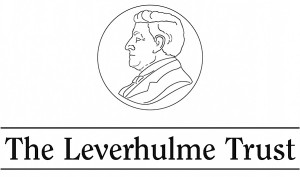
The Newton Fund is an initiative with the aim of developing the long-term sustainable growth and welfare of partner countries through building research and innovation capacity. It forms part of the UK’s Official Development Assistance commitment. The Newton Fund Partner Countries are: Brazil, Chile, China, Colombia, Egypt, India, Indonesia, Kazakhstan, Malaysia, Mexico, the Philippines, South Africa, Thailand, Turkey and Vietnam.
Newton Advanced Fellowships
The Academy of Medical Sciences, British Academy and Royal Society are inviting applications to the first round of the Newton Advanced Fellowships as part of the Newton Fund. Newton Advanced Fellowships provide established researchers with an opportunity to develop the research strengths and capabilities of their research group or network through training, collaboration and reciprocal visits with a partner in the UK. Awards last for up to three years and are available to support researchers across the natural sciences including engineering, clinical or patient-oriented research, social sciences and humanities. Up to £37,000 is available each year for:
- A salary top up (maximum £5,000) for the group or network leader from the partner country.
- Research support (up to £15,000) to cover costs for studentships, staff, consumables or equipment.
- Travel and subsistence (up to £12,000) to cover travel costs of the UK partner to the international partner and/or travel of the international partner to the UK.
- Training (up to £5,000) to support the career development of the applicant and their research group or network.
Newton Mobility Grants
- The British Academy programme is known as Newton Mobility Grants. Grants are offered up to a maximum of £10,000 for a period of one year.
- The Royal Academy of Engineering programme is known as the Newton Research Collaboration Programme. Awards provide funding at a flat rate of £2,000 per month of exchange visit (up to £24,000 for twelve months total exchange visit/s).
- The Royal Society programme is known as Newton International Exchanges. Awards last from between three months and up to two years, and up to £12,000 is available dependent upon the length of the visit.
The British Academy – www.britac.ac.uk/newtonfund/
Royal Academy of Engineering – www.raeng.org.uk/NewtonFund/
Royal Society – https://royalsociety.org/grants/schemes/newton-mobility-grants/





 Would you be prepared to share your data with the wider research community or the general public?
Would you be prepared to share your data with the wider research community or the general public? 
 Academic staff will continue to be guided through the process and made aware of the internal submission deadlines by the CRE Operations team.
Academic staff will continue to be guided through the process and made aware of the internal submission deadlines by the CRE Operations team.










 Upcoming opportunities for PGRs – collaborate externally
Upcoming opportunities for PGRs – collaborate externally BU involved in new MRF dissemination grant
BU involved in new MRF dissemination grant New COVID-19 publication
New COVID-19 publication MSCA Postdoctoral Fellowships 2024
MSCA Postdoctoral Fellowships 2024 Horizon Europe News – December 2023
Horizon Europe News – December 2023